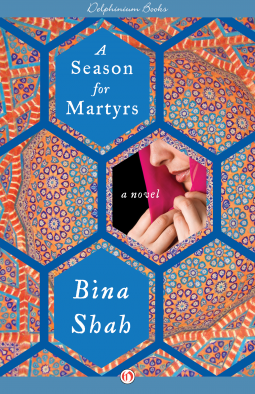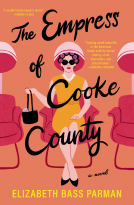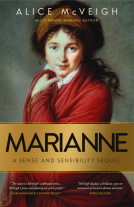
A Season for Martyrs
by Bina Shah
This title was previously available on NetGalley and is now archived.
Send NetGalley books directly to your Kindle or Kindle app
1
To read on a Kindle or Kindle app, please add kindle@netgalley.com as an approved email address to receive files in your Amazon account. Click here for step-by-step instructions.
2
Also find your Kindle email address within your Amazon account, and enter it here.
Pub Date Nov 04 2014 | Archive Date Jan 04 2015
Description
October, 2007. Pakistan’s former Prime Minister Benazir Bhutto returns home after eight years of exile to seek political office once more. Assigned to cover her controversial arrival is TV journalist Ali Sikandar, the estranged son of a wealthy landowner from the interior region of Sindh. While her presence ignites fierce protests and assassination attempts, Ali finds himself irrevocably drawn to the pro-democracy People’s Resistance Movement, a secret that sweeps him into the many contradictions of a country still struggling to embrace modernity. As Shah weaves together the centuries-old history of Ali’s feudal family and its connection to the Bhuttos, she brilliantly reveals a story at the crossroads of the personal and the political, a chronicle of one man’s desire to overcome extremity to find love, forgiveness, and even identity itself.
Open Road Media would like to thank you for your interest in this title, and we encourage you to share your thoughts with the book community. We hope you will take your time to post your review on Goodreads or retailer's sites, such as Amazon and Barnes & Noble.
A Note From the Publisher
Advance Praise
“In A Season for Martyrs, Bina Shah mixes myth with history and the personal with the political to sing of Sindh in the past and mourn for Pakistan in the present: a musical and mesmerising work.” —Tabish Khair, author of How to Fight Islamist Terror From the Missionary Position
"A Season for Martyrs not only tells an excellent story, set in the Bhutto years, but deftly interweaves it with the myths of the Sufi saints, who are buried and remembered in the Sindh province of Pakistan. The historical and mythical aspects of this important novel are to be savored: Bina Shah is an admirable writer." —Bapsi Sidhwa, author of Cracking India“Listen to the voice of Bina Shah—you will hear a young, confident, compassionate new Pakistan. Her latest novel not only sparkles with wit and wisdom but is a deeply moving paean to the power of love for the author's Pakistani culture and people.” —Professor Akbar Ahmed, author, playwright, poet, and Chair of Islamic Studies at American University
"An intriguing novel which blends events in contemporary Pakistan with ancient Sindh... Bina Shah has drawn heavily on her own cultural heritage, combining fact with fiction, past with living memory. While the contemporary theme of her novel is set against the background of Benazir Bhutto's return to Pakistan in October 2007 and the events leading up to her assassination in December, the past provides vignettes of iconic personalities in Sindhi history, evoking an old civilization, rich in its diversity and contradictions. A Season for Martyrs also illustrates the transience of individual suffering, where loyalties and beliefs are constantly challenged." —Victoria Schofield, biographer, military historian, and author of Kashmir in the Crossfire and Bhutto: Trial and Execution
Marketing Plan
No Marketing Info Available
No Marketing Info Available
Available Editions
| EDITION | Ebook |
| ISBN | 9781497697515 |
| PRICE | $14.99 (USD) |
Average rating from 5 members
Featured Reviews
 Christine E, Reviewer
Christine E, Reviewer
Disclaimer: ARC via Netgalley.
There is a tendency in America to think too small when it comes to global politics. The world, according to many news agencies, ends at the border of the United States, sometimes it even excludes Hawaii and Alaska. Despite the heavy number of 24 hour news networks, most news on television, at least American television, is sadly general and nationalistic. There are exceptions to this of course, but in most classes the nightly news will either spend a minute about the Ebola outbreak while cable news recycles the same sound bites, over and over.
When Benazhir Bhutto was killed the best coverage, at least in my area was BBC World News, but even there it lacked a certain quality. It implied, if not directly stated, that she universally loved in Pakistan.
And this is hardly ever the case, as this novel shows.
Shah’s novel focuses on Ali, a young man in Pakistan who stands in the middle of everything. He isn’t political, couldn’t really care about current events but works for a news station. His family life is complicated, and Ali, a Muslim, loves a young Hindi woman who loves him back. Ali’s life changes when Benazhir Bhutto returns to Pakistan to seek re-election. One of the bones of discontent in his family is how Bhutto is seen, strongly supported by Ali’s father, while Ali himself has a less glossed view. Ali, himself, hopes to be able to continue with his education, perhaps by going to America. Throw in the Bush War on Terror, and you have a novel that could be a lecture, but thankfully isn’t. Ali steers clear of the Romeo and Juliet vibe as well, making the story a coming of age story in terms of politics.
What Shah presents is history, not only in the now of Ali’s story, but in the past of Pakistan as well, starting with a mythical story and ending with that of Ali’s own father. These tales alternate with Ali’s own story. At first, it doesn’t quite seem as if this will work, but it does. It works extremely well.
The narrative allows Shah to present another view to the War on Terror, one that is even different from the recent look at drones that John Oliver did on his HBO series. Ali wants to be almost too many things it seems like, and while he struggles to make sense of who and what he is, he also struggles to make sense of who and what the people around him are. This true regardless of his boss at the news agency who at first seems a bit bitch like, but perhaps is merely driven, to his close friend who may be bi-sexual or just gay, to his sister who longs for a bit more freedom, freedom that Ali isn’t quite sure he can get for himself.
It is a honed in viewpoint of one particular time and the effects that politics and thinking about politics can have on the individual. Ali struggles with questions that we all ask – when do you give up on your country or politicians? When is forgiveness an option? Should it even be one?
And over it, the most dominant symbol is Bhutto and what, we the reader know, is going to happen to her.
In some ways, it is that knowledge that makes the end hit like a punch.
If you are an American, it will be a thought provoking read that will highlight other effects of the War on Terror and international policy. This is a mirror to Ali who slowly and surely awakens from his shocked apathy.
 Mystica V, Reviewer
Mystica V, Reviewer
The story is told in two parts. We have the life of Ali a journalist for Channel 24 and then we have the imminent return of Benazir Bhutto to Pakistan from her exile in Dubai.
Both come from the same family of feudal zamindars of the Sindh community. Benazir Bhutto's father took his political leanings far and established a party which was at odds with the feelings of his community. He was for the common man, he sought land distribution (which did not go down too well with the people who owned land), he also sought the upliftment of the common man. For this he paid the ultimate price. His daughter took up the political baton and was set to make wide sweeping changes. That this could happen in an orthodox Muslim country was in itself a massive story. That it actually happened is the fact.
Ali's life is also complicated. Involved in a love affair with a Hindu girl which in itself was a no no from both sides he knows that the chances of this love affair reaching its goal is almost impossible. His story that his father is dead just to avoid scandal is also not helping him or his family. His father has taken a second wife and moved away - he not acknowledging his father's existence is causing him more heartbreak than he imagined. The relationship between father and children has been distant and Ali as a young man is now feeling its absence the most. Ali has also secretly applied for a visa to the US and when this gets known to his family he is treated with suspicion because he did not disclose this to them. Trying to reconcile his personal life with the professional is also hard for Ali. He supports Benazir Bhutto but at the same time is skeptical about her aims. The corruption charges against the Bhuttos has not gone away and he is aware as do most of Pakistan of their enormous wealth both in Pakistan and abroad and he wonders how this came about.
The story then shifts to Bhutto's planned arrival in Pakistan and the events that preceded it. The dismissal of the Chief Justice and the breakdown of law and order was huge at the time as other than bringing in the military hard, there was no way for Musharaff to stay in power. Like most autocratic regimes the army was brutal and the death toll and the missing toll was very heavy.
A story of personal lives and political turmoil combined, alongside a fascinating slice of history and the development of a country goes alongside each other in this book.
Loved it.
Readers who liked this book also liked:
Marie Bostwick
Historical Fiction, Literary Fiction, Women's Fiction












